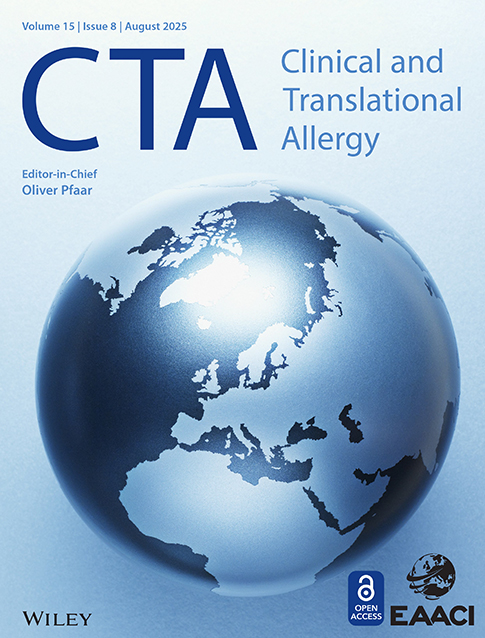PD01 - Respiratory allergens in human milk: potential impact on susceptibility to allergic airway disease
Patricia Macchiaverni, Akila Rekima contributed equally to this work.
Background
Impact of exposure to environmental allergens during early life on allergic sensitization and disease development is controversial.
Objective
We investigated whether airborne allergen from Dermatophagoides pteronyssinus (Der p), a major cause of allergic asthma, is found in human breast-milk and examined its impact on allergic outcome in a mouse model.
Methods
Der p 1 was quantified in human colostrum and milk samples from Brasil, Australia and France by ELISA. Basophil degranulation assay was used to confirm immunogenicity of Der p. BALB/c mice were fostered by mothers exposed to Der p during lactation. Progeny allergic response to Der p was measured at 6-weeks.
Results
Der p 1 was present in 58% Brazilian, 70% French, and 78% Australian colostrum. Median [Der p 1] was similar between countries (96 pg/mL). In mature milk, Der p1 was found in 55% of samples, median [Der p 1] was 65·9 pg/mL and was significantly lower than in colostrum (p=0·0001). Der p 1-containing milks were able to induce basophils degranulation. Mice breastfed by Der p-exposed mothers had 5-fold increased levels of Der p specific IgE and IgG1 compared to mice breastfed by naïve mothers. Their allergic airway inflammation was not affected.
Conclusion
Early life exposure to ubiquitous respiratory allergens can take place through breastfeeding. An animal model mimicking the human situation shows early life exposure to Der p through milk primes the immune system. The presence of respiratory allergens in breast-milk may be an important factor in driving the early immune function towards allergic disease.




